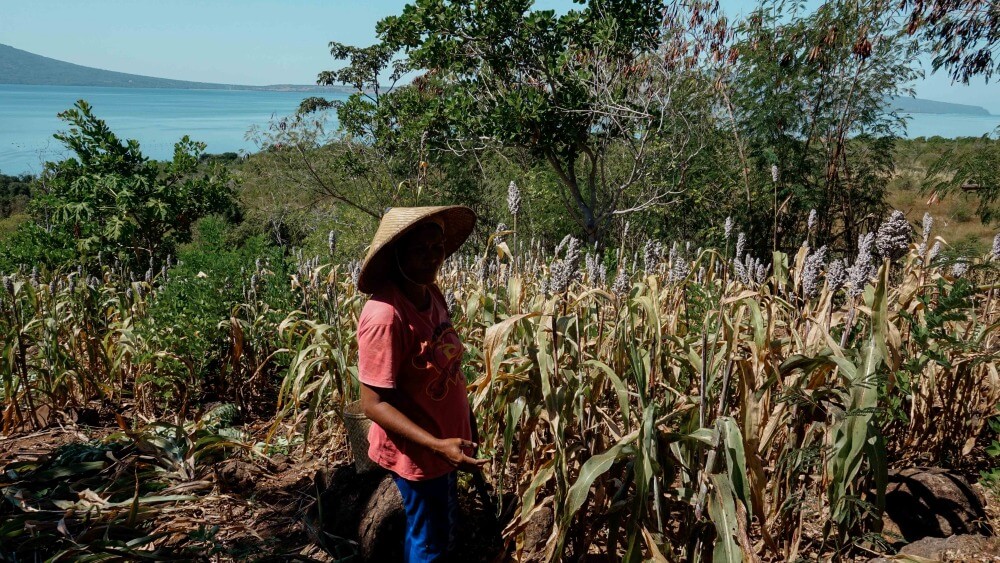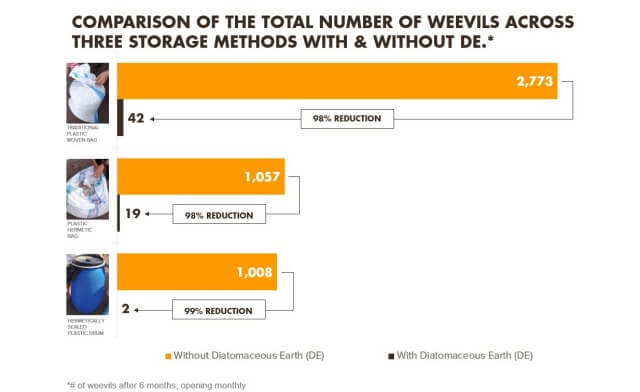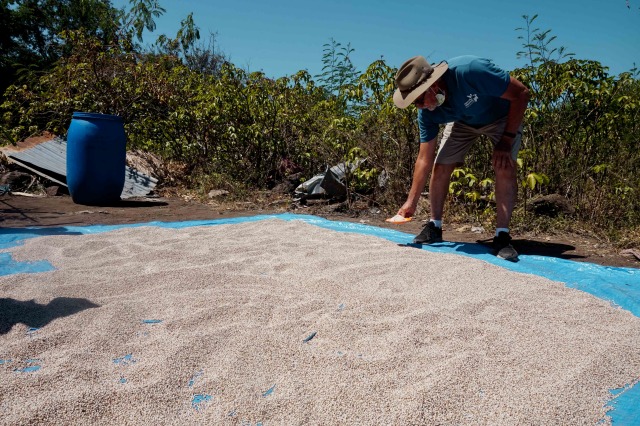
Since late 2016, Kopernik has been working with smallholder farmers in last mile areas of Indonesia to find practical solutions to address grain loss caused by weevil infestation during storage. After the harvest, farmers usually store their crops as food supply for the lean season but risk losing up to 70 percent of their stored grain due to insufficient weevil protection using traditional storage methods. These losses are a threat to food security and farmers’ livelihoods.
Based on the first and second phases of Kopernik’s Grain Storage Solution experiments, Kopernik found that storing grain in hermetically-sealed plastic drums at full capacity (meaning filled to the top) – and keeping them sealed (without opening the container during the storage period to take out grain as needed) – was so far the most effective way to keep the weevils out. However, the research also showed that this solution might not be optimal as hermetically sealed plastic drums are costly and farmers are likely to need to access the grain more frequently than once every six months.
To address these challenges, in the third phase of the experiment, we applied food grade Diatomaceous Earth (DE)1, a natural insecticide, to the three storage solutions: the current method of a woven plastic sack, a hermetic plastic bag, and a hermetically-sealed plastic drum. From May to October, we have been opening the storage containers every month to check for weevils and found none in all three storage methods. It was only in the sixth month that we found a small number of weevils in all three containers.

Similar to findings in the first and second phase, the airtight plastic drum performed better than the other two storage solutions. Only two weevils were found in the drum compared to 42 in the traditional woven plastic sack and 19 in the hermetic bag. This number of weevils accounts for a 98 percent drop found inside all storage solutions when compared to findings in the first phase.

Food grade DE is safe for human consumption, and may allow farmers to keep out weevils during storage.
More analysis is needed to determine the feasibility of the solution but the application of DE has shown early potential to be a viable and cost-effective solution for smallholder farmers. Stay tuned for the complete findings of our experiment which will be available in our upcoming project report!


